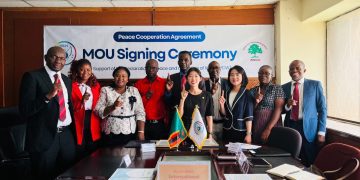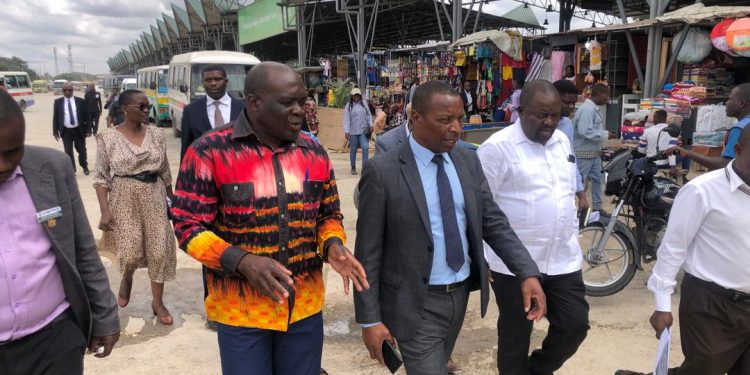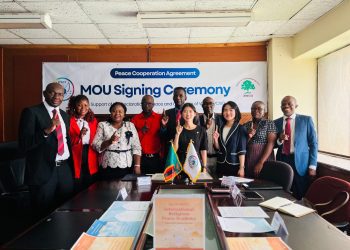Melo News Correspondent | Thursday, May 16, 2024 | Dodoma, Tanzania
In an effort to enhance local government practices, a delegation from the Zambian Parliament, led by Chairperson Hon. Darius Mulunda, recently visited Tanzania. This visit aimed to explore effective strategies and learn from the Tanzanian parliamentary committee’s successful experiences in fostering good governance at the local level. The delegation participated in insightful discussions and engaged in constructive dialogue with their Tanzanian counterparts, exchanging knowledge and best practices.
With a focus on improving service delivery, citizen participation, and accountability, the Zambian delegation sought to gain valuable insights into Tanzania’s local government model. By studying successful initiatives and innovative approaches, the delegation aimed to identify practical solutions that could be adapted and implemented back home. The visit emphasized the importance of collaboration and knowledge-sharing amongst African nations, highlighting the value of learning from one another’s successes and challenges.
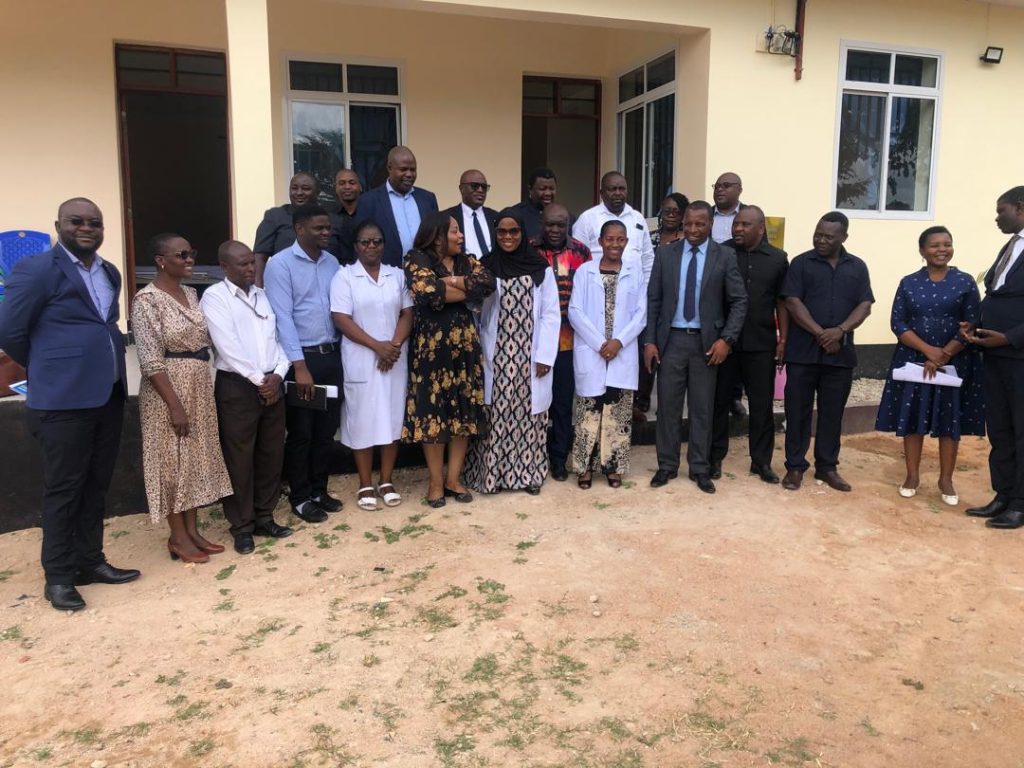
This initiative underscores the commitment of both Zambia and Tanzania to strengthen their local government systems and ultimately improve the lives of their citizens. Through these collaborative exchanges, African nations are working together to drive positive change at the grassroots level and foster good governance practices that contribute to sustainable development.
Parliamentary committees play a crucial role in ensuring effective governance at the local level. These committees are responsible for overseeing the implementation of policies and programs, as well as monitoring the performance of government agencies. By conducting inquiries, engaging in consultations, and conducting research, parliamentary committees provide valuable insights and recommendations to improve service delivery, citizen participation, and accountability in local government.
Through their oversight functions, parliamentary committees can identify gaps and inefficiencies in the local government system, and propose necessary reforms. They also provide a platform for citizens to voice their concerns and participate in decision-making processes. This ensures that the government remains accountable to the people and that their needs and aspirations are adequately addressed.
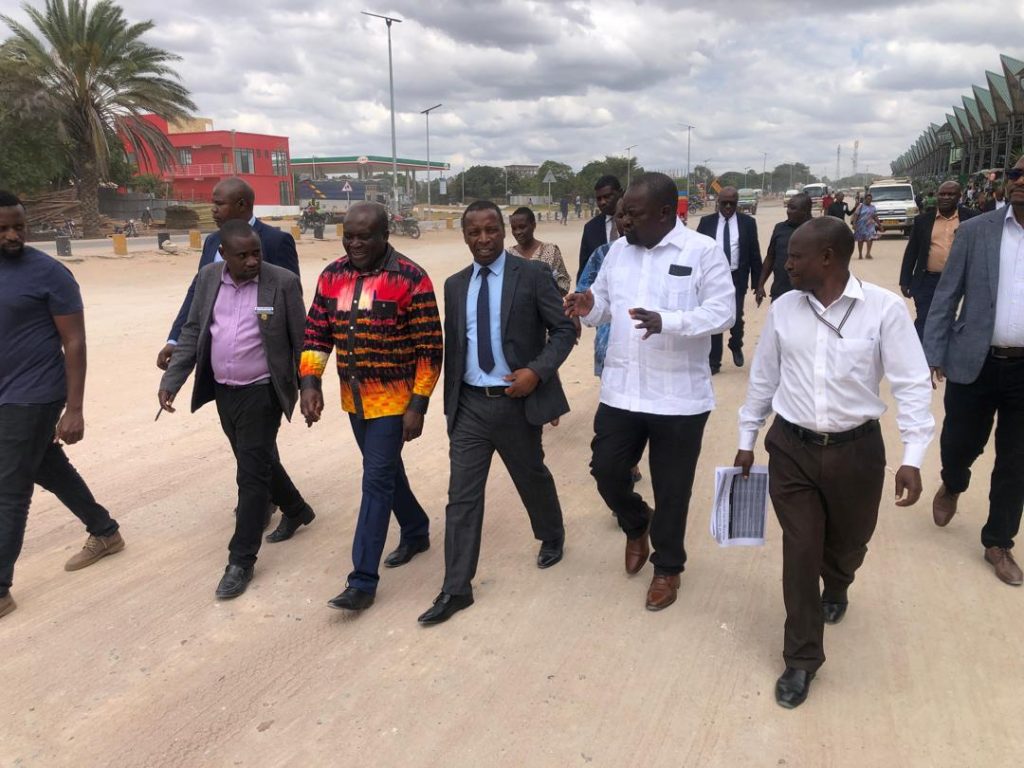
In the case of Zambia, the parliamentary committee led by Hon. Darius Mulunda recognizes the importance of effective local government practices in driving development and improving the lives of citizens. By visiting Tanzania and engaging with their counterparts, the committee aims to learn from successful experiences and identify practical solutions that can be implemented back home.
The recent visit of the Zambian Parliamentary Committee to Tanzania was a significant step towards fostering cooperation and knowledge-sharing between the two African nations. Led by Chairperson Hon. Darius Mulunda, the delegation embarked on a journey to explore effective local government practices and gain valuable insights from Tanzania’s experiences in this realm.
The visit aimed to strengthen bilateral ties and enhance collaboration between the two countries in improving local governance. The delegation consisted of members from various parliamentary committees, including those responsible for local government affairs, finance, and public administration. This diverse representation allowed for comprehensive discussions and a holistic understanding of the subject matter.
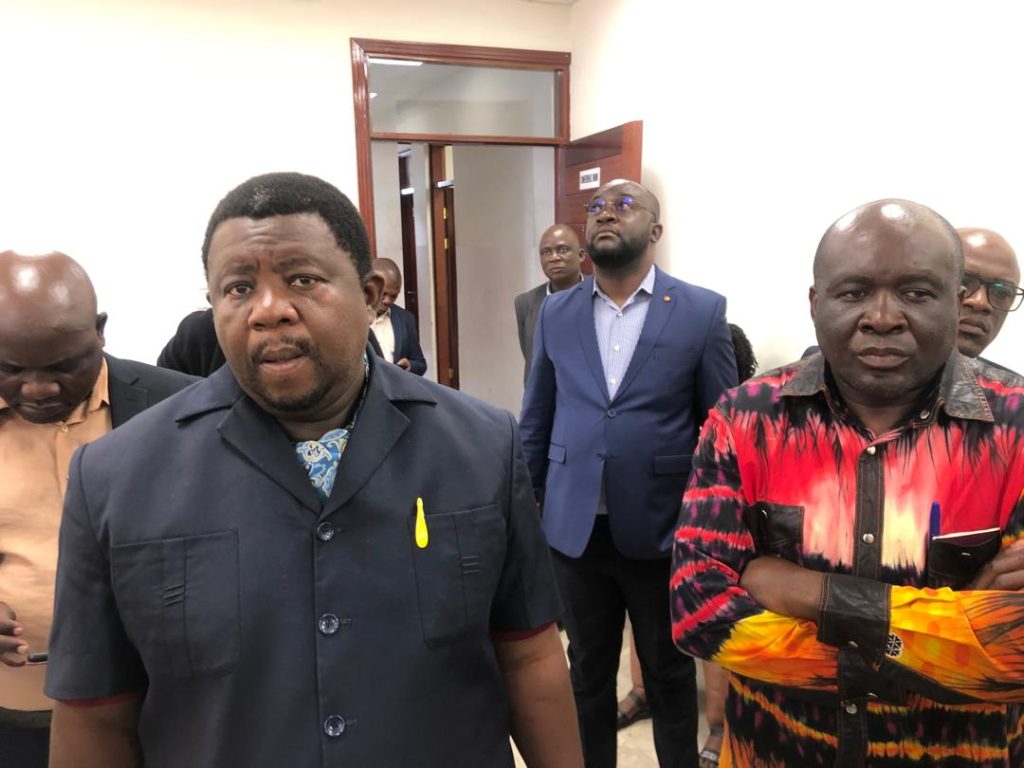
During the visit, the Zambian delegation had the opportunity to engage in insightful discussions with Tanzanian parliamentary committee members. The discussions covered a wide range of topics, including citizen participation, service delivery, accountability mechanisms, and innovative approaches to local government administration. The exchange of ideas and experiences provided a unique learning opportunity for both parties involved.
The visit of the Zambian Parliamentary Committee to Tanzania had several key objectives. Firstly, it aimed to study and understand Tanzania’s local government model, which has been widely recognized for its effectiveness in delivering services and promoting citizen participation. By gaining a deeper understanding of the Tanzanian approach, the Zambian delegation hoped to identify best practices that could be adapted and implemented in their own context.
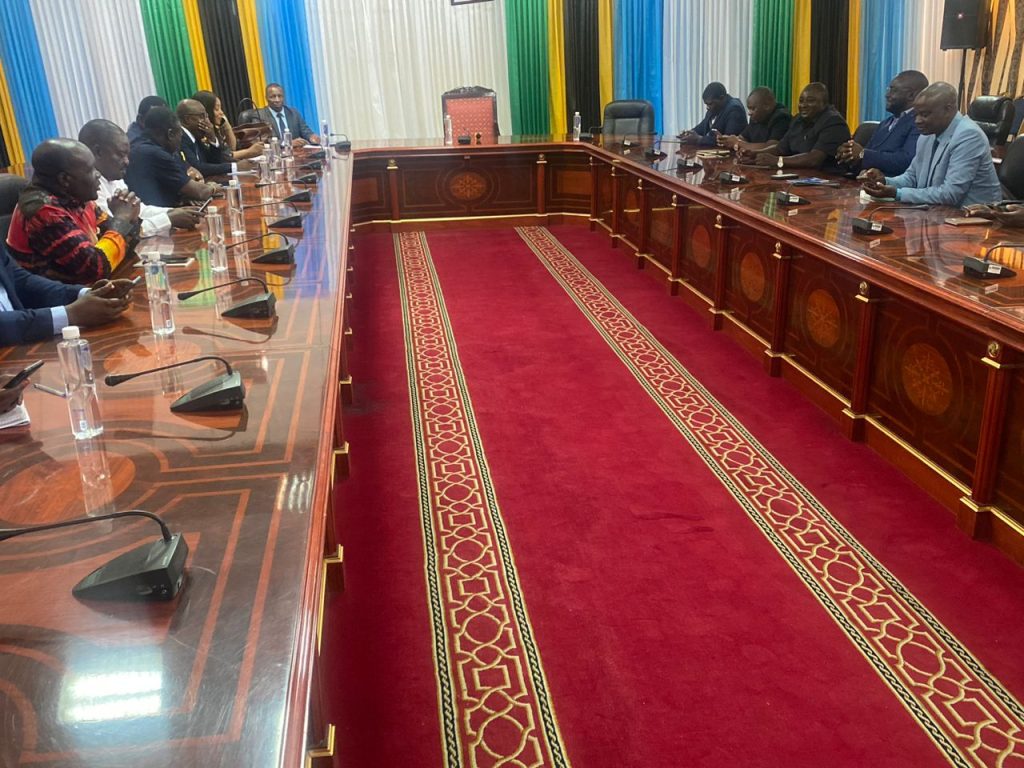
Secondly, the visit aimed to foster collaboration and knowledge-sharing between the two countries. By engaging in constructive dialogue, the delegation sought to build relationships and establish networks with Tanzanian counterparts. This collaboration would serve as a platform for future exchanges and cooperation in the realm of local government practices.
Lastly, the visit aimed to highlight the importance of African nations working together to drive positive change at the grassroots level. By showcasing successful initiatives and sharing challenges faced, both Zambia and Tanzania aimed to inspire other countries in the region to prioritize local governance and learn from each other’s experiences.
During their visit to Tanzania, the Zambian parliamentary committee focused on several key areas of local government practices that are crucial for effective governance. These areas included service delivery, citizen participation, accountability mechanisms, and innovative approaches to local government administration.
Service delivery is a cornerstone of effective local governance. The delegation sought to understand Tanzania’s strategies for delivering quality services to its citizens, particularly in remote and underserved areas. By studying successful initiatives, such as community-driven development programs and decentralized service delivery models, the committee aimed to identify practical solutions that could be implemented in Zambia.
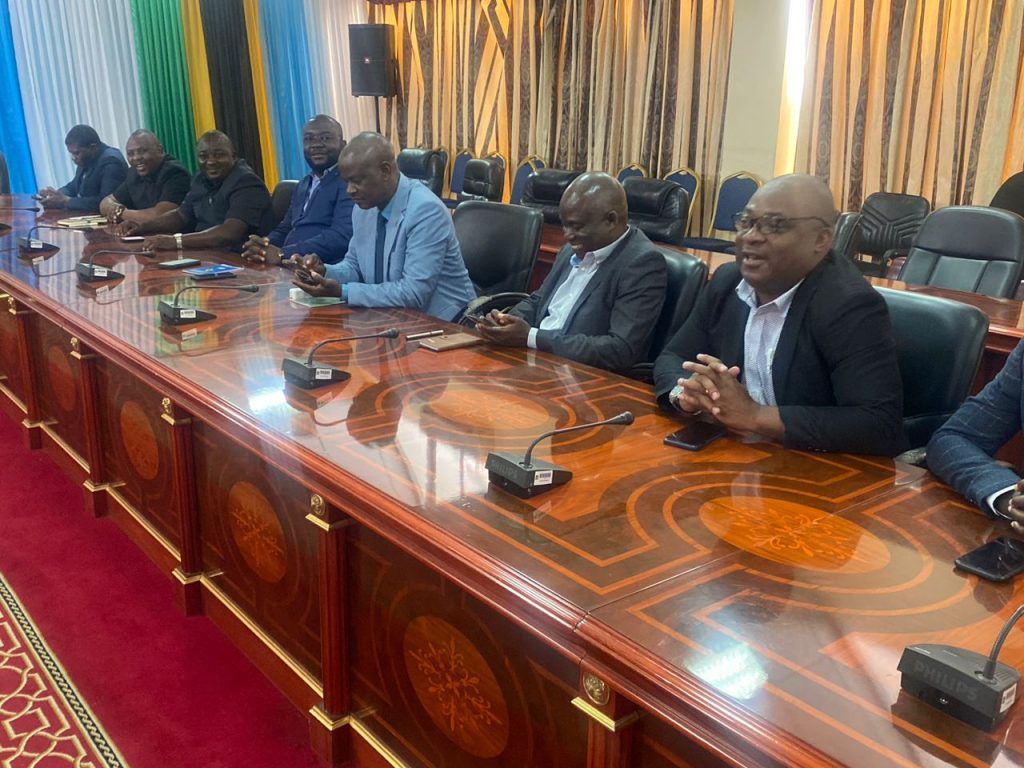
Citizen participation is another crucial aspect of local government practices. The delegation explored Tanzania’s approaches to engaging citizens in decision-making processes and ensuring their voices are heard. This included studying mechanisms such as participatory budgeting, community-based planning, and citizen advisory committees. By understanding these approaches, the Zambian delegation aimed to enhance citizen participation in their own local government systems.
Accountability mechanisms were also a key area of focus during the visit. The delegation sought to learn about Tanzania’s strategies for promoting transparency, integrity, and accountability in local government. This included studying mechanisms such as public financial management systems, audit processes, and citizen feedback mechanisms. By understanding these mechanisms, the committee aimed to strengthen accountability in the Zambian local government system.
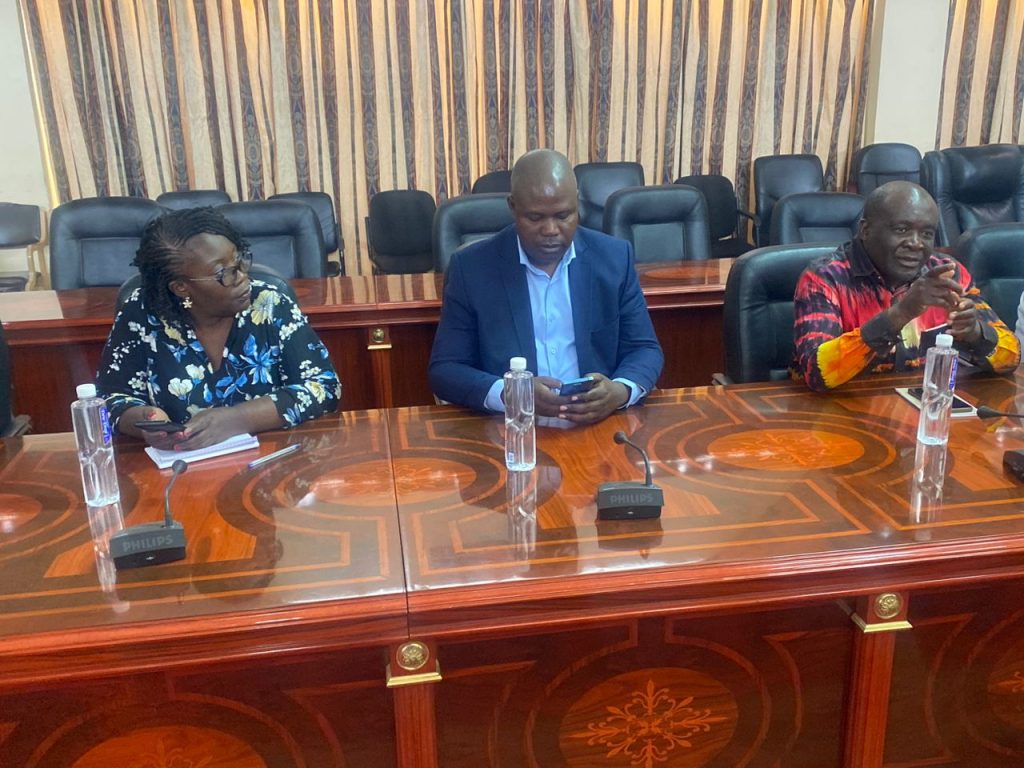
Lastly, the delegation explored innovative approaches to local government administration. This included studying digital technologies and e-governance initiatives that have been successfully implemented in Tanzania. By understanding these approaches, the committee aimed to identify opportunities for leveraging technology to improve service delivery, enhance citizen participation, and strengthen accountability in Zambia.
The focus on these key areas of local government practices during the visit ensured that the delegation gained a comprehensive understanding of Tanzania’s successful experiences and identified practical solutions that could be adapted and implemented in Zambia.
The visit of the Zambian Parliamentary Committee to Tanzania facilitated an exchange of best practices between the two countries. Through discussions and interactions, both parties had the opportunity to share successful initiatives, innovative approaches, and lessons learned in the realm of local government practices.
The Tanzanian parliamentary committee members shared their experiences in implementing community-driven development programs, which have been successful in improving service delivery in remote and underserved areas. This approach involves empowering communities to identify their own development priorities, allocate resources, and implement projects. The Zambian delegation recognized the potential of this approach and expressed interest in exploring its implementation in their own context.
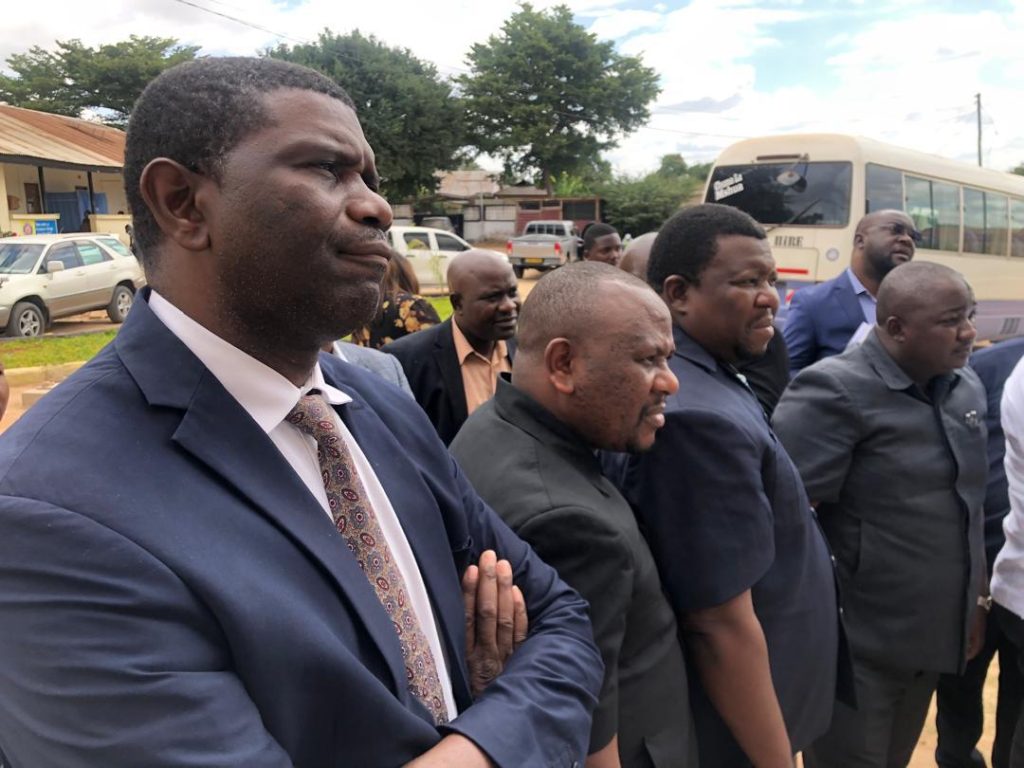
Similarly, the Tanzanian parliamentary committee shared their experiences in promoting citizen participation through mechanisms such as participatory budgeting and community-based planning. These approaches ensure that citizens have a say in decision-making processes and allow them to actively contribute to the development of their communities. The Zambian delegation acknowledged the importance of citizen participation and expressed their intent to enhance it in their own local government system.
The Tanzanian parliamentary committee also highlighted their efforts in strengthening accountability in local government through mechanisms such as public financial management systems and citizen feedback mechanisms. These initiatives promote transparency, integrity, and citizen oversight, ensuring that resources are used effectively and that public officials are held accountable for their actions. The Zambian delegation recognized the value of these mechanisms and expressed their commitment to implementing similar systems in Zambia.
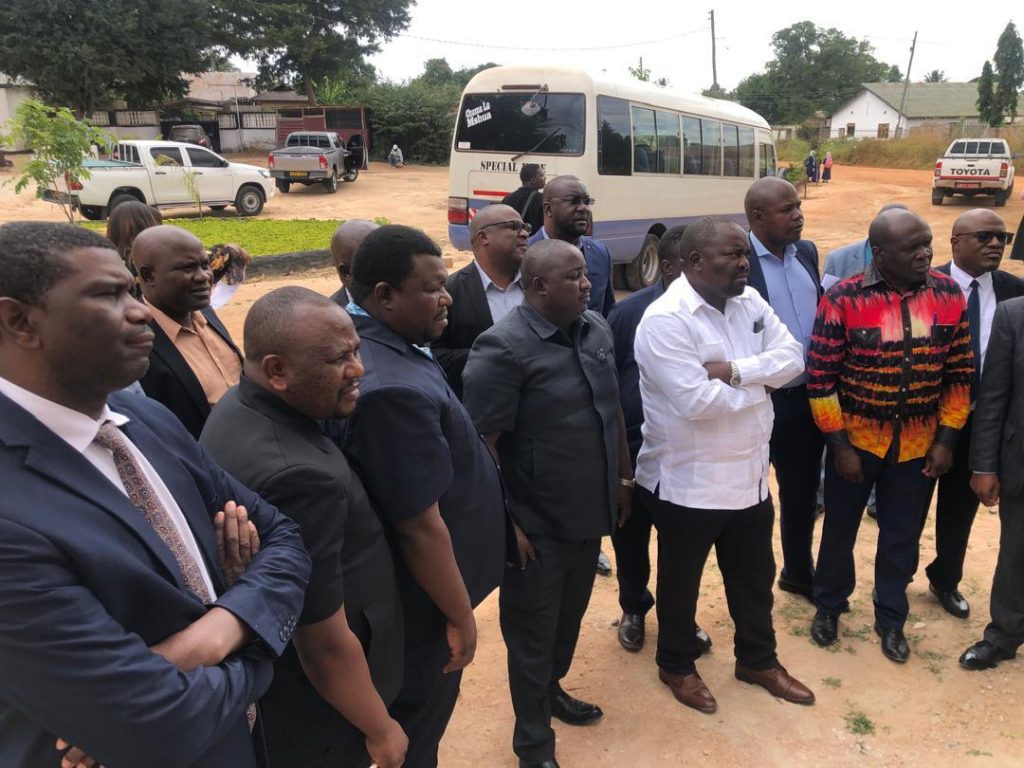
Furthermore, the delegation from Zambia also shared their own experiences and initiatives in local government practices. This allowed the Tanzanian counterparts to gain insights into the Zambian context and identify areas where they could potentially learn from Zambia’s experiences. This mutual exchange of best practices created a rich learning environment and contributed to the overall objectives of the visit.
The visit of the Zambian Parliamentary Committee to Tanzania was marked by several highlights and key outcomes. The delegation had the opportunity to engage in constructive dialogue with Tanzanian parliamentary committee members, government officials, and local government representatives. These interactions facilitated the sharing of knowledge, experiences, and insights, which contributed to the overall objectives of the visit.
One of the highlights of the visit was the field visits to various local government projects and initiatives. The delegation had the opportunity to witness firsthand the impact of successful programs and interact with beneficiaries. This practical exposure provided valuable insights and reinforced the importance of effective local government practices in driving development and improving the lives of citizens.
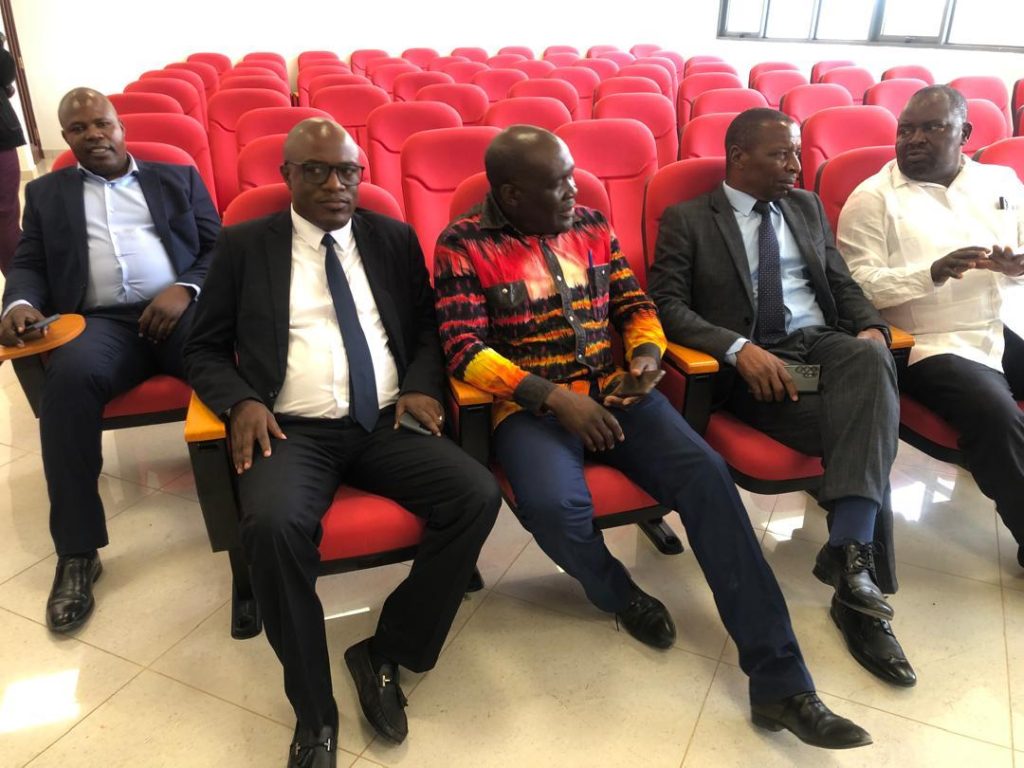
The visit also resulted in the identification of practical solutions and potential areas of collaboration between Zambia and Tanzania. The exchange of best practices allowed both parties to gain new perspectives and identify opportunities for improvement in their own local government systems. The delegation from Zambia expressed their commitment to implementing the lessons learned and adapting successful initiatives from Tanzania to their own context.
Furthermore, the visit fostered relationships and networks between the Zambian and Tanzanian parliamentary committee members. This collaboration serves as a foundation for future exchanges, joint initiatives, and ongoing cooperation in the realm of local government practices. The delegation expressed their intent to maintain regular communication and explore further opportunities for collaboration.
Overall, the visit was a success in terms of achieving its objectives and establishing fruitful partnerships between Zambia and Tanzania. The insights gained, lessons learned, and relationships formed during the visit have laid the groundwork for driving positive change at the grassroots level and fostering good governance practices in both countries.
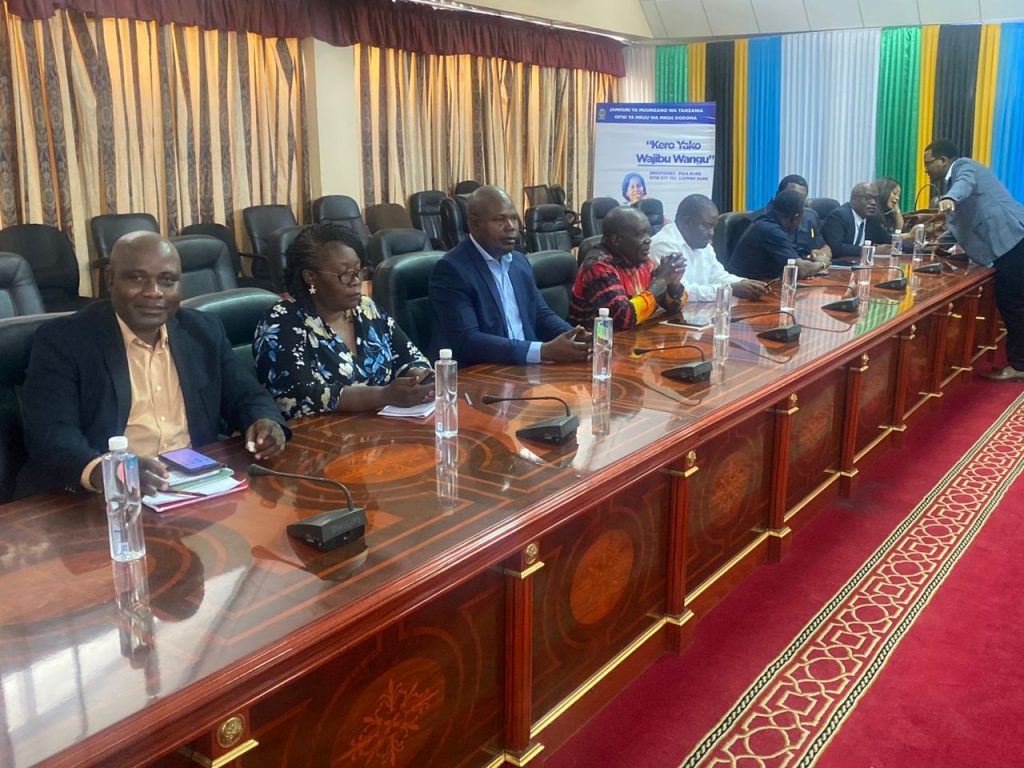
The visit of the Zambian Parliamentary Committee to Tanzania provided valuable lessons that can be applied to local government practices in Zambia. These lessons include the importance of community-driven development programs, citizen participation, accountability mechanisms, and innovative approaches to local government administration.
The success of community-driven development programs in Tanzania highlighted the importance of empowering communities and involving them in decision-making processes. This approach ensures that development priorities are aligned with the needs and aspirations of the people, leading to improved service delivery and sustainable development. The Zambian delegation recognized the potential of this approach and expressed their intent to explore its implementation in their own local government system.
The emphasis on citizen participation in Tanzania’s local government practices underscored the importance of engaging citizens in decision-making processes and ensuring their voices are heard. By actively involving citizens in the planning, implementation, and monitoring of development projects, local governments can harness the collective wisdom and expertise of their communities. The Zambian delegation acknowledged the value of citizen participation and expressed their commitment to enhancing it in their own context.
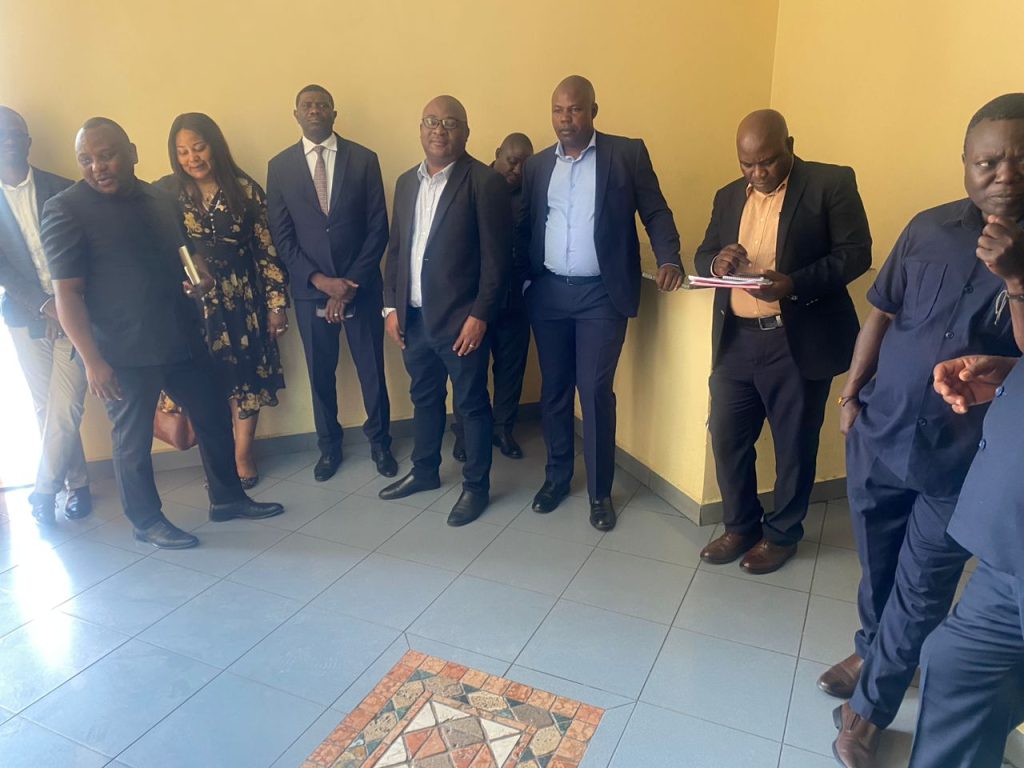
The focus on accountability mechanisms in Tanzania’s local government practices highlighted the importance of transparency, integrity, and citizen oversight. By promoting mechanisms such as public financial management systems and citizen feedback mechanisms, local governments can ensure that resources are used effectively and that public officials are held accountable for their actions. The Zambian delegation recognized the need for stronger accountability mechanisms and expressed their intent to implement similar systems in Zambia.
Lastly, the exploration of innovative approaches to local government administration in Tanzania demonstrated the potential of leveraging technology to improve service delivery, enhance citizen participation, and strengthen accountability. The Zambian delegation recognized the opportunities presented by digital technologies and expressed their intention to explore their application in their own local government system.
The visit of the Zambian Parliamentary Committee to Tanzania has significant implications for local government practices in Zambia. The insights gained and lessons learned from the visit provide a roadmap for improving service delivery, citizen participation, and accountability in the Zambian local government system.
The emphasis on community-driven development programs highlights the importance of empowering communities and involving them in decision-making processes. The Zambian government can consider implementing similar initiatives that allow communities to identify their own development priorities, allocate resources, and implement projects. This approach can lead to improved service delivery, increased community ownership, and sustainable development.
The focus on citizen participation underlines the importance of engaging citizens in local government decision-making processes. The Zambian government can explore mechanisms such as participatory budgeting, community-based planning, and citizen advisory committees to enhance citizen participation. By actively involving citizens, local governments can tap into the collective wisdom and expertise of their communities, leading to more inclusive and effective decision-making.
The exploration of accountability mechanisms emphasizes the need for transparency, integrity, and citizen oversight in local government practices. The Zambian government can consider implementing mechanisms such as public financial management systems, audit processes, and citizen feedback mechanisms to enhance accountability. These mechanisms can ensure that resources are used effectively, public officials are held accountable, and citizens have avenues to voice their concerns and provide feedback.
Lastly, the exploration of innovative approaches to local government administration highlights the potential of leveraging technology to improve service delivery, enhance citizen participation, and strengthen accountability. The Zambian government can explore the use of digital technologies and e-governance initiatives to streamline processes, increase efficiency, and enhance transparency in local government operations.
Overall, the visit has significant implications for local government practices in Zambia. By adopting the lessons learned and implementing successful initiatives from Tanzania, the Zambian government can drive positive change at the grassroots level, improve service delivery, enhance citizen participation, and strengthen accountability.
The visit of the Zambian Parliamentary Committee to Tanzania led by Chairperson Hon. Darius Mulunda has been a significant milestone in fostering collaboration and knowledge-sharing between the two countries. The exchange of best practices, insights gained, and lessons learned have laid the foundation for driving positive change at the grassroots level and enhancing local government practices.
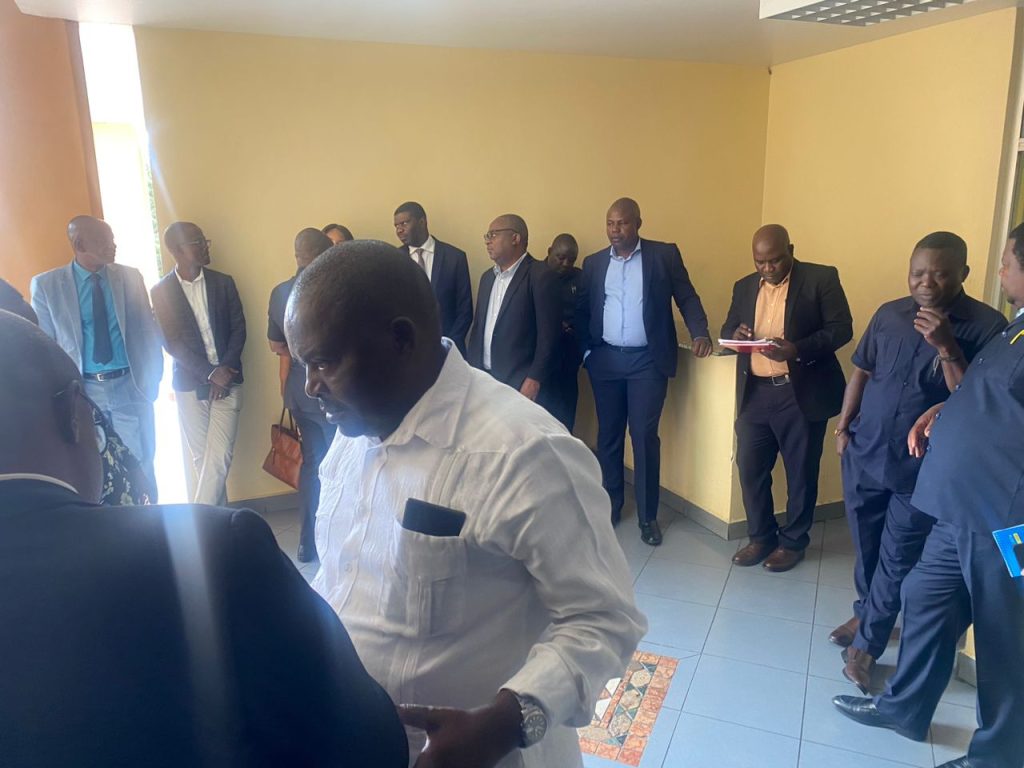
The visit highlighted the importance of parliamentary committees in local government and their role in ensuring effective governance. It emphasized the value of collaboration and knowledge-sharing amongst African nations, showcasing the importance of learning from one another’s successes and challenges.
The outcomes of the visit, including the identification of practical solutions and potential areas of collaboration, set the stage for future exchanges and joint initiatives between Zambia and Tanzania. The relationships and networks formed during the visit provide a platform for ongoing cooperation and the sharing of experiences and best practices.
Moving forward, it is crucial for both Zambia and Tanzania to build upon the insights gained during the visit and implement the lessons learned in their respective local government systems. Through continued collaboration, African nations can work together to enhance local government practices, improve service delivery, promote citizen participation, and strengthen accountability.
The visit of the Zambian Parliamentary Committee to Tanzania has demonstrated the commitment of both countries to strengthen their local government systems and ultimately improve the lives of their citizens. By fostering collaboration and knowledge-sharing, African nations are paving the way for sustainable development and good governance practices at the grassroots level.


